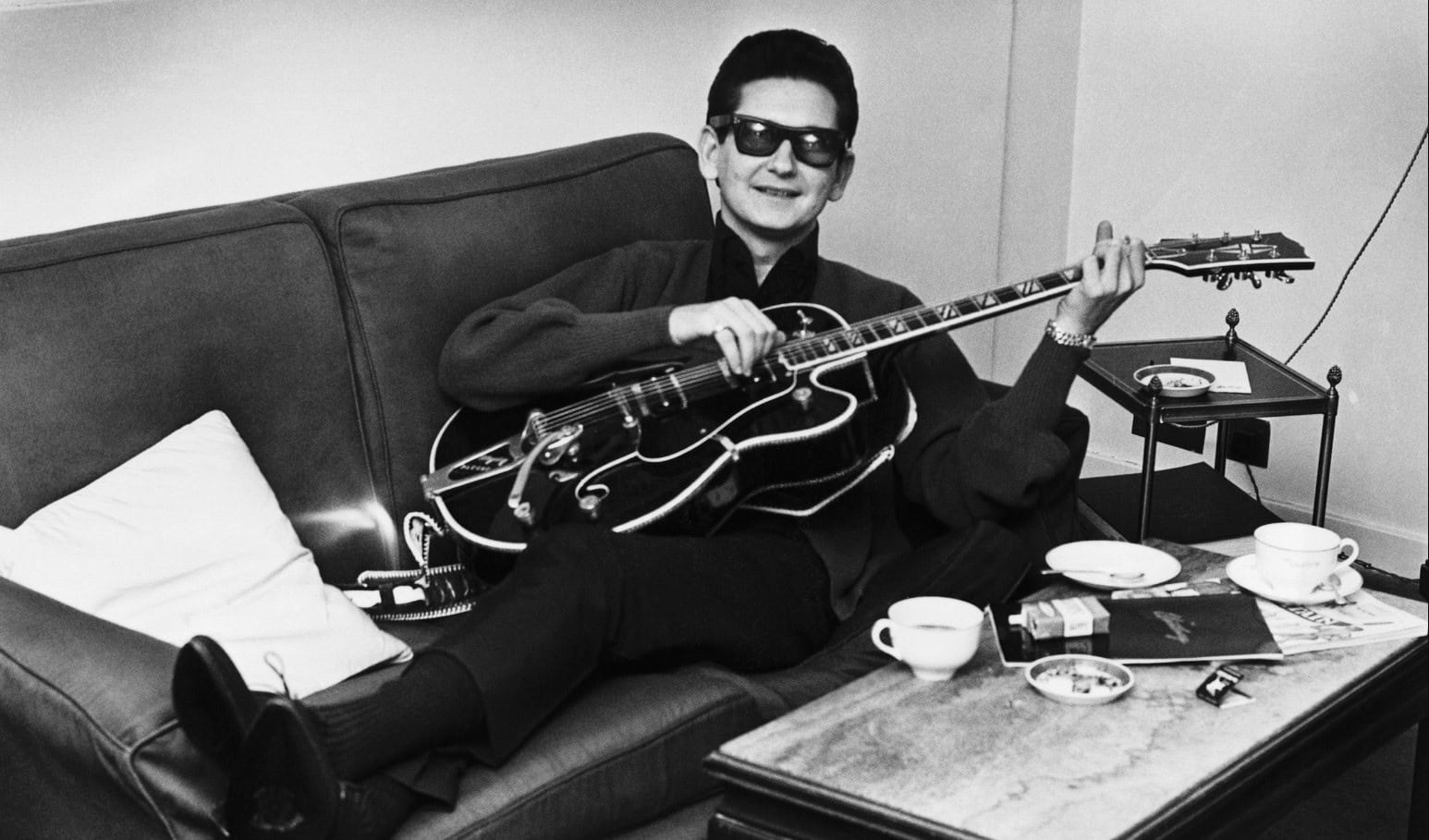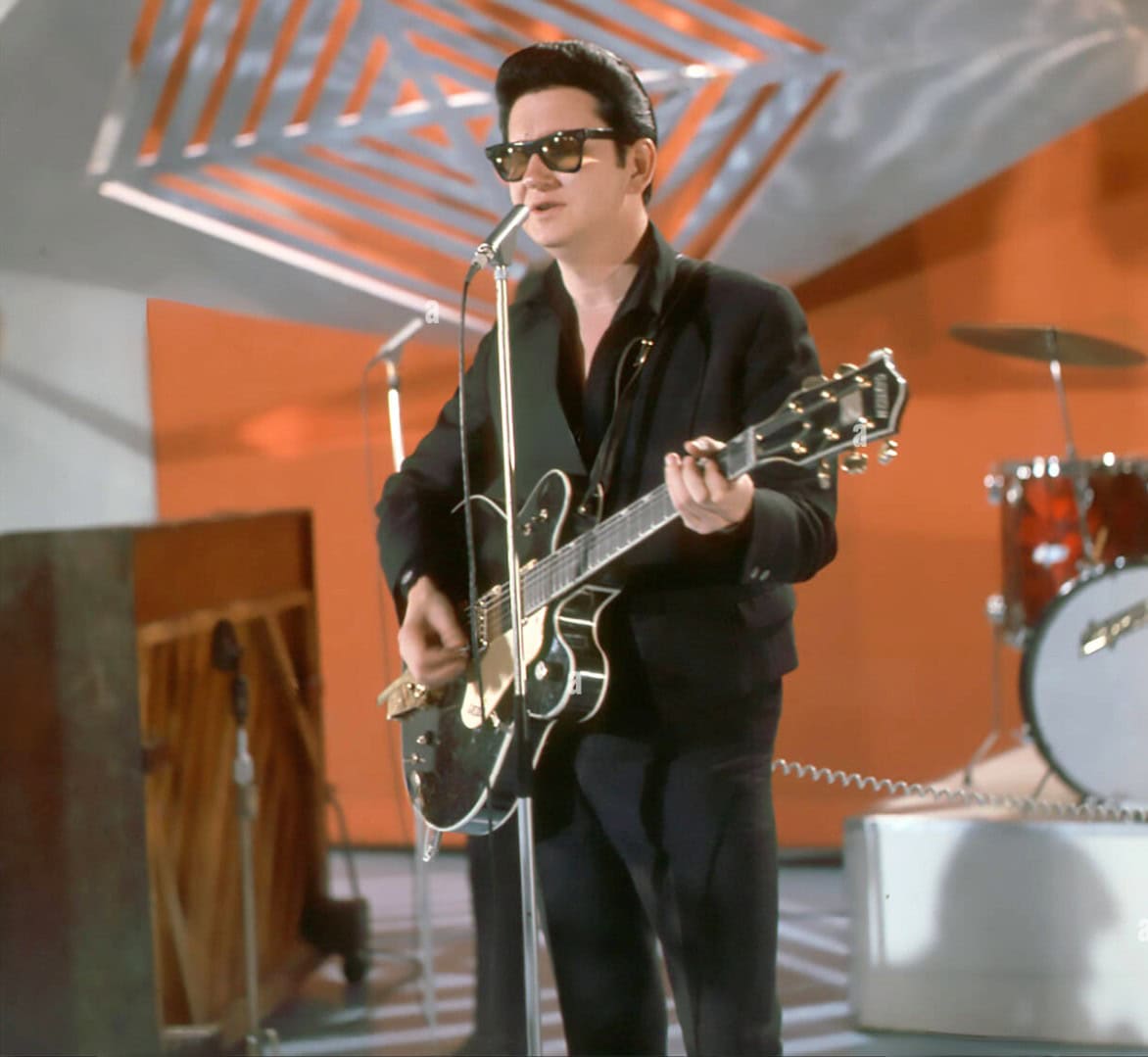
About the song
Roy Orbison’s performance of “It’s Over” from his legendary concert *Black and White Night* is a powerful reminder of his unparalleled vocal talent and emotional depth. Originally released in 1964, “It’s Over” became one of Orbison’s significant hits, reaching number 9 on the Billboard Hot 100 chart. This song is a quintessential example of Orbison’s ability to convey profound heartache and sorrow through his unique voice, which has touched audiences for decades.
Roy Orbison, often known as “The Big O,” is celebrated for his distinctive vocal range and emotive delivery. His career, which began in the late 1950s, is marked by a series of timeless hits, including “Only the Lonely,” “Crying,” and “Oh, Pretty Woman.” Orbison’s music is characterized by its emotional intensity and lyrical storytelling, qualities that have earned him a lasting place in the pantheon of rock and roll legends.
“It’s Over” is a song that perfectly encapsulates Orbison’s artistic essence. Written by Orbison and Bill Dees, the song explores themes of heartbreak and finality, with lyrics that vividly depict the end of a relationship. Orbison’s performance on *Black and White Night*, recorded in 1987 and released in 1989, brings a renewed intensity to the song, highlighting his enduring ability to connect with listeners on a deeply emotional level.
*Black and White Night* was a star-studded event featuring an impressive lineup of musicians, including Bruce Springsteen, Elvis Costello, and Tom Waits, among others. This concert not only celebrated Orbison’s illustrious career but also showcased his influence on a younger generation of artists. The performance was filmed in black and white, adding a timeless quality that complements the classic nature of Orbison’s music.
During this performance of “It’s Over,” Orbison’s voice is as captivating as ever. The stark, monochromatic visuals of the concert setting emphasize the song’s themes of loss and desolation. His ability to deliver each note with such clarity and emotion is a testament to his vocal prowess and his deep understanding of the human experience. For an older and educated audience, this performance is a poignant reminder of Orbison’s remarkable talent and his ability to convey universal emotions through his music.
In summary, Roy Orbison’s rendition of “It’s Over” from *Black and White Night* is a masterful showcase of his vocal abilities and emotional depth. The song, a significant hit from 1964, remains a powerful example of Orbison’s talent for expressing heartache and sorrow. This performance, set against the timeless backdrop of the black and white concert, highlights Orbison’s lasting impact on the world of music and his continued relevance as an iconic figure in rock and roll history.

Video
Lyrics
Your baby doesn’t love you any more
Golden days before they end
Whisper secrets to the wind
Your baby won’t be near you anymore
Tender nights before they fly
Send falling stars that seem to cry
Your baby doesn’t want you any more
It’s over
It breaks your heart in two
To know she’s been untrue
But, oh, what will you do?
When she says to you
There’s someone new
We’re through, we’re through
It’s over, it’s over, it’s over
All the rainbows in the sky
Start to weep, then say goodbye
You won’t be seeing rainbows anymore
Setting suns before they fall
Echo to you that’s all that’s all
But you’ll see lonely sunsets after all
It’s over, it’s over, it’s over
It’s over